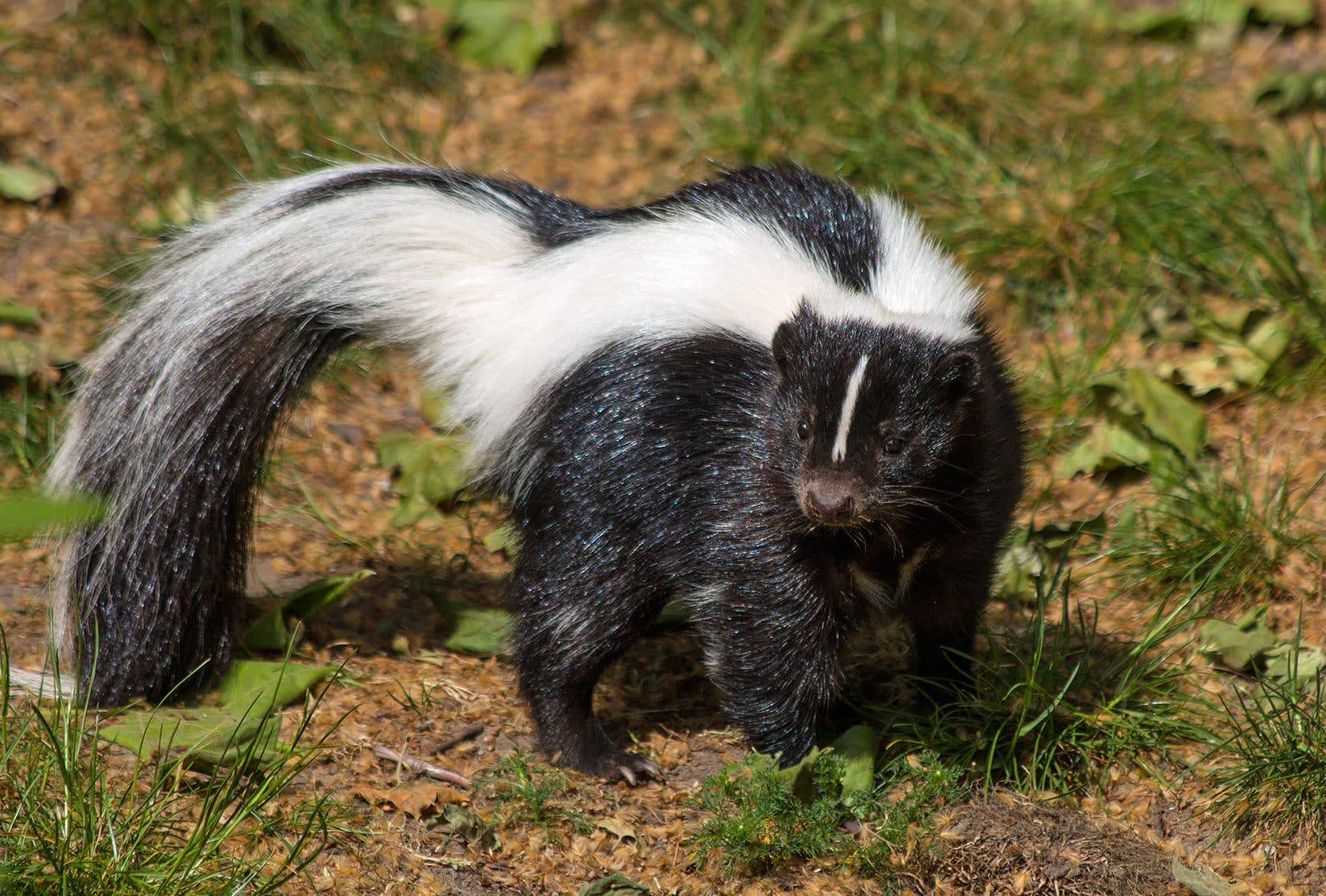Skunks are instantly recognizable creatures known for their distinctive black and white coloration and their potent defense mechanism. While most people are familiar with the infamous skunk spray, there's much more to these intriguing animals. Here are five fascinating facts about skunks that might surprise you:
1. Skunk Species Diversity: Skunks belong to the family Mephitidae, and there are a total of 12 recognized species within this family. While the striped skunk is the most common and widely recognized species, there are also spotted skunks, hog-nosed skunks, and even hooded skunks. These species vary in size, coloration, and behavior, but they all share the ability to spray a foul-smelling liquid when threatened.
2. Warning Coloration: The bold black and white coloration of skunks serves as a visual warning to potential predators. This coloration, known as aposematic coloration, signals danger and discourages predators from attacking. Skunks are slow-moving animals, and their coloration acts as a way to communicate that they are armed with an effective defense mechanism.
3. Accurate Spray: Skunks are famous for their ability to spray a noxious liquid as a defense mechanism. This spray is not only smelly but can also cause temporary blindness and irritation. What's truly remarkable is that skunks have incredible accuracy when spraying. They can accurately aim their spray up to 10 feet away with precision, allowing them to deter predators effectively.
4. Omnivorous Diet: Skunks are opportunistic feeders with a varied diet. While they are often associated with raiding trash cans, their diet includes much more than just leftovers. Skunks eat insects, small mammals, fruits, berries, and even plants. This versatility in diet helps them survive in a wide range of habitats, from forests to grasslands.
5. Beneficial for Pest Control: Despite their pungent reputation, skunks play an important role in natural pest control. They are voracious predators of insects, particularly those that can be harmful to crops and gardens. By keeping insect populations in check, skunks contribute to maintaining the balance of ecosystems and can be valuable allies to farmers and gardeners.
In conclusion, skunks are remarkable creatures with a range of intriguing characteristics beyond their well-known defensive spray. Their diverse species, warning coloration, accurate spray, adaptable diet, and ecological role all contribute to their significance in the natural world. While encountering a skunk may still evoke caution, a deeper understanding of these creatures can foster appreciation for their unique qualities and the role they play in maintaining the delicate balance of nature.



No comments yet
Be the first to share your thoughts!